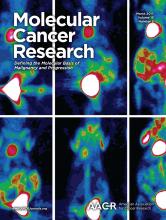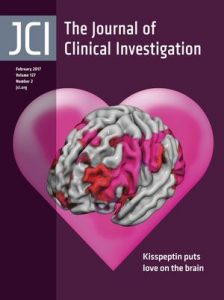 The week at Retraction Watch featured more fallout from a citation-boosting episode, and a look at when animal research becomes unnecessary and cruel. Here’s what was happening elsewhere: Continue reading Weekend reads: How to speed up peer review; the whipsaw of science news headlines; data-sharing stance sparks resignation request
The week at Retraction Watch featured more fallout from a citation-boosting episode, and a look at when animal research becomes unnecessary and cruel. Here’s what was happening elsewhere: Continue reading Weekend reads: How to speed up peer review; the whipsaw of science news headlines; data-sharing stance sparks resignation request
Month: March 2017
3rd retraction appears for fired Pfizer breast cancer researcher
 Pfizer has retracted a paper by a former employee who was fired after the company discovered she had been doctoring data.
Pfizer has retracted a paper by a former employee who was fired after the company discovered she had been doctoring data.
The retraction, in Molecular Cancer Research, is the third of five papers Pfizer asked to retract, after an investigation discovered they contained duplicated images. The papers have been discussed on PubPeer, which is also mentioned in the latest retraction notice.
As a result of the investigation, Pfizer terminated the employment of Min-Jean Yin, the last author on the newly retracted paper.
According to the notice, Yin and five of her co-authors agreed to the retraction:
Continue reading 3rd retraction appears for fired Pfizer breast cancer researcher
Citation-boosting episode leads to editors’ resignations, university investigation

The fallout from an investigation into alleged citation-boosting at several journals that we first reported on two weeks ago has widened, leading to the resignation of the executive editor of one of the journals, and an investigation at a university in The Netherlands.
On February 13, the European Geosciences Union (EGU) announced that an editor at two of its journals had resigned following an investigation by the EGU and its publishing arm, Copernicus, into citation-boosting. They declined to name the editor in question. Last week, we reported that the editor in chief of a Wiley journal, Land Degradation & Development, has temporarily stepped down while the journal investigated similar concerns about why the journal’s impact factor had jumped dramatically recently.
Others — many cleared in the EGU’s investigation — have been swept up in the ongoing story. Here’s what has happened in the last two weeks: Continue reading Citation-boosting episode leads to editors’ resignations, university investigation
Researcher who lost whistleblower lawsuit logs 4 more retractions
 A brain journal has retracted four papers by a researcher due to image duplications that the university uncovered during an investigation into his work.
A brain journal has retracted four papers by a researcher due to image duplications that the university uncovered during an investigation into his work.
According to the retraction notice, Wayne State University found that Christian Kreipke had used several images in these articles “to represent different results in grant proposals and/or poster presentations,” and that the data were unreliable. Kreipke now has a total of five retractions, by our count.
As we’ve reported before, Wayne State and Kreipke have been engaged in conflict for several years. In 2012, Kreipke was dismissed from his assistant professor post at Wayne State after the university said it found evidence of research misconduct, according to Courthouse News. Kreipke fired back against the university, filing a whistleblower lawsuit. In it, Kreipke claimed that the institution was “involved in a conspiracy,” according to unsealed court documents, in which it had swindled the U.S. government out of millions in research funding.
A judge dismissed the case in 2014, but the conflict between Kreipke and Wayne State was not over. Continue reading Researcher who lost whistleblower lawsuit logs 4 more retractions
Unexplained abnormalities in stem cells prompt Columbia researchers to pull diabetes paper
Researchers at Columbia University have retracted a 2013 paper in The Journal of Clinical Investigation, after uncovering abnormalities in the stem cell lines that undermined the conclusions in the paper.
Last year, corresponding author Dieter Egli discovered he could not reproduce key data in the 2013 paper because almost all the cell lines first author Haiqing Hua used contained abnormalities, casting doubt on the overall findings. When Egli reached out to Hua for answers, Hua could not explain the abnormalities. As a result, Hua and Egli agreed the paper should be retracted.
Since some of the details of how the paper ended up relying on abnormal cells remain unclear, the university confirmed to us that it is investigating the matter.
Here’s the retraction notice for “iPSC-derived β cells model diabetes due to glucokinase deficiency,” cited 42 times: Continue reading Unexplained abnormalities in stem cells prompt Columbia researchers to pull diabetes paper
When you have 94 retractions, what’s two more?
Attention Joachim Boldt: The 1990s are calling, and they want their papers back.
The Annals of Thoracic Surgery has retracted two papers from the early 1990s on which Boldt was the first author – bringing the retraction tally for the disgraced German anesthesiologist to 96, by our count. Both articles were found to contain manipulated data.
The first paper, from 1990, was titled “Acute Preoperative Plasmapheresis and Established Blood Conservation Techniques,” and was written when Boldt was on the faculty at Justus-Liebig University, in Giessen.
According to the notice:
Continue reading When you have 94 retractions, what’s two more?
Faked data, plagiarism, no co-author okays…yeah, this paper’s been retracted
A researcher in South Korea has retracted a 2016 paper on which he is listed as senior author because a former student wrote and published the article without his permission.
According to the retraction notice, the former student also fabricated data and plagiarized “a substantial amount of material” from previous papers published by the senior and middle author.
Here’s the retraction notice for “Oleaginous yeast-based production of microbial oil from volatile fatty acids obtained by anaerobic digestion of red algae (Gelidium amansii),” published in the Korean Journal of Chemical Engineering in April 2016 and retracted in January: Continue reading Faked data, plagiarism, no co-author okays…yeah, this paper’s been retracted


